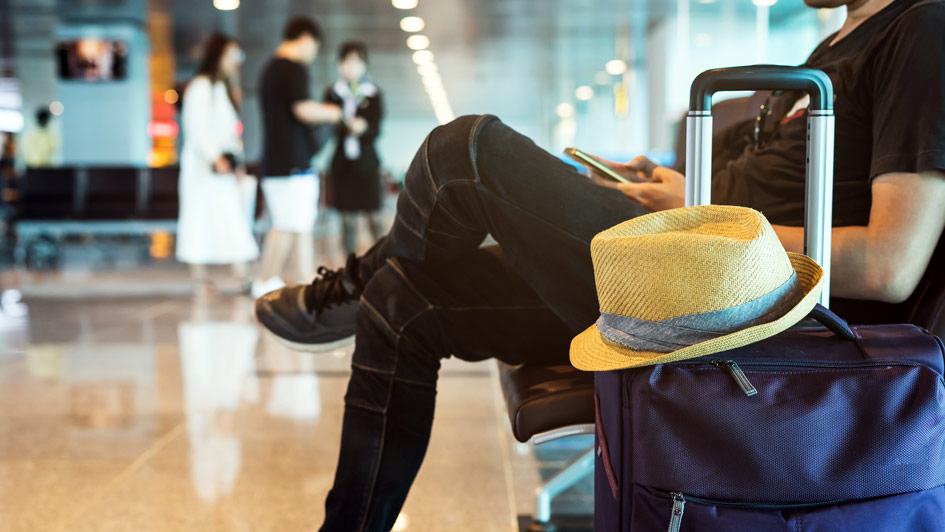
Whether it’s a tropical vacation or a long trip for work, leaving home means making preparations for your HVAC system. You won’t be using it as long as you’re away, so you can make adjustments as necessary to minimize your energy use. Simultaneously, you shouldn't just shut it down for the entire time you're gone.
In general, it’s better to leave your HVAC system running and just make adjustments depending on whether it's winter or summer. That way you can reduce energy costs without stressing about coming back to an uncomfortable home. We’ll review why you should leave your HVAC system on as well as the most energy-efficient thermostat settings for different times of year.
Here’s Why You Shouldn’t Leave Your Thermostat Alone
While you may be tempted to turn your HVAC system off before a trip, this can end up leading to costly problems by the time you come back. This is notably true if the weather will be severely hot or cold while you’re away from home.
For example, shutting the HVAC system down during the summer will sometimes lead to very high humidity. Not only will your home feel like a swamp when you have returned, but it could have also encouraged mold/mildew growth or pest infestations.
And over the winter, not using the furnace might lead to pipes icing over or even bursting. It’s an awful feeling to come home from a nice trip only to come across extensive water damage nearby a broken pipe.
Energy-Efficient Thermostat Settings While at Work
You can adjust the temperature even as you come and go to work. Considering you’re not home for around 8 hours or so, it doesn’t help your monthly energy bill to keep an empty home at the same temperature you’d usually have. As a general rule, it’s encouraged to raise the thermostat by 5 degrees or more. Meaning that if you prefer a comfortable 72 degrees, consider increasing it to 76-77 while you’re out.
But you could save even more if you try further adjustments to the temperature. As stated by the Department of Energy, you may save nearly 10% on your HVAC costs by making an adjustment of 7-10 degrees.
Energy-Efficient Thermostat Settings While Away from Home in Summer
If you’re leaving for a lengthier trip in the middle of summer, you can make larger adjustments. This prevents wasting energy while still protecting your home from the problems that come with leaving it un-air conditioned. About 5 degrees is suitable for short trips while around 10 degrees is worthwhile if you’ll be out of town for 2 weeks or longer. If you like keeping the house at 72 in the summer, 78-82 should offer the best results.
Recommended Thermostat Settings While on Vacation in Winter
To determine the best thermostat setting for a winter vacation, just lower the temperature by the same amount you would increase it in summer. 68 is a popular winter thermostat setting, so lowering it to 63-58 will prevent ice from forming on pipes while minimizing how often your furnace operates.
A Smart Thermostat Can Help: Perks of Smart Thermostat Installation
A great way to regulate your home’s HVAC system while away is with a smart thermostat. This special type of programmable thermostat employs intelligent software to track your typical comfort habits. It learns these preferences and makes automatic corrections to the schedule for better energy efficiency. And with Wi-Fi connectivity, you can remotely adjust your heating and cooling with a smart device like a phone or tablet.
Smart thermostats are loaded with features to help you save even more. For example, certain models can observe electricity prices to boost heating or cooling when prices are more affordable. They can also work with high-efficiency, variable-speed equipment to fine-tune how long your HVAC system has to run. It’s the ideal tool to simplify how you use your comfort system. If you’re thinking about investing in a smart thermostat, there are different ways you can reduce your costs, effectively getting a smart thermostat for free. The next time you are away from home, you can appreciate true peace of mind that your HVAC system won’t stir up any trouble while you’re away from home.
